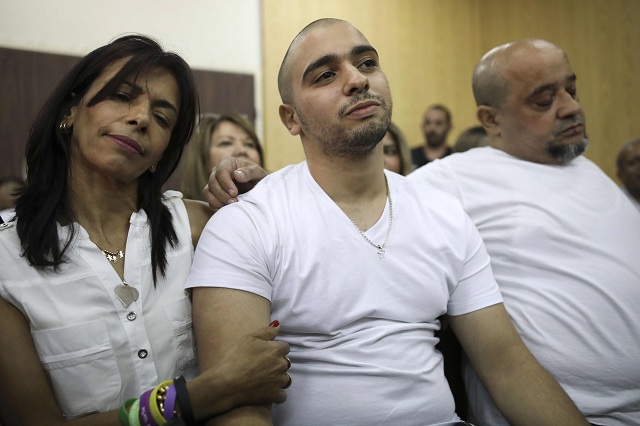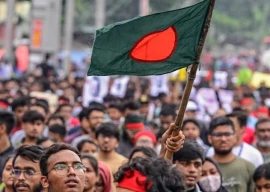
Prime Minister Benjamin Netanyahu immediately repeated his call for a pardon for the soldier, Elor Azaria, whose actions drew harsh criticism from the military's top brass.
In addition to upholding the conviction, military judges also rejected an appeal by prosecutors to increase the sentence for Azaria, a sergeant and military medic at the time of the incident, Israeli media reported.
Israeli forces shoot Palestinian gunman dead: army
"My opinion has not changed when it comes to granting pardon to Elor Azaria and remains consistent to what I said after the verdict," Netanyahu said on Twitter.
דעתי לא השתנתה בדבר מתן חנינה לאלאור אזריה, כפי שהבעתי אותה לאחר הכרעת הדין. כשהנושא יעלה לדיון מעשי אעביר המלצתי לחנינה לגורמים הרלוונטיים
— Benjamin Netanyahu - בנימין נתניהו (@netanyahu) July 30, 2017
"When the subject is discussed concretely, I will give my recommendation to the competent authorities."
The 21-year-old French-Israeli was convicted in January and sentenced the following month.
He later appealed the verdict, while military prosecutors asked for an increased sentence after having initially requested between three and five years.
Azaria arrived at the military court in Tel Aviv on Sunday in a white V-neck shirt, smiling and hugging family members as he has done at previous hearings.
He completed his mandatory three-year military service on July 20 and was moved from confinement to his base to house arrest.His imprisonment had been postponed pending his appeal.
He can still appeal to the country's supreme court, though Defence Minister Avigdor Lieberman called on him not to and to request a pardon from the military chief of staff.
Azaria can also ask for a pardon from President Reuven Rivlin. A source close to Rivlin said that no request had yet been filed.
"This is not an easy day, but it is the verdict, and the court must be respected," Lieberman said.
"I am asking the Azaria family not to continue the appeal process... and to bring an end to this matter as quickly as possible for the good of Elor, his family and the Israeli people."
The March 2016 shooting in the occupied West Bank city of Hebron was caught on video by a rights group and spread widely online.
It showed Abdul Fatah al-Sharif, 21, lying wounded on the ground, shot along with another Palestinian after stabbing and wounding a soldier, according to the army.
Azaria then shot him in the head without any apparent provocation.
He said he feared Sharif was wearing an explosive belt and could blow himself up, a claim judges rejected.
Three attackers shoot at Jerusalem police before being killed: police
"His motive for shooting was that he felt the terrorist deserved to die," Judge Colonel Maya Heller said when reading out the verdict in January.
The trial captivated Israel and highlighted deep divisions in public opinion between those who decry the shooting and those who say he was justified.
Military leaders have sharply condemned Azaria's actions. However, right-wing leaders, including Netanyahu, have called for him to be pardoned in an extraordinary public rift between politicians and the military.
Rights group Amnesty International has said Azaria's sentence does "not reflect the gravity of the offence", and the UN human rights office said it was an "unacceptable" punishment for "an apparent extra-judicial killing".








1730884134-0/BeFunky-collage-(26)1730884134-0-270x192.webp)








COMMENTS
Comments are moderated and generally will be posted if they are on-topic and not abusive.
For more information, please see our Comments FAQ